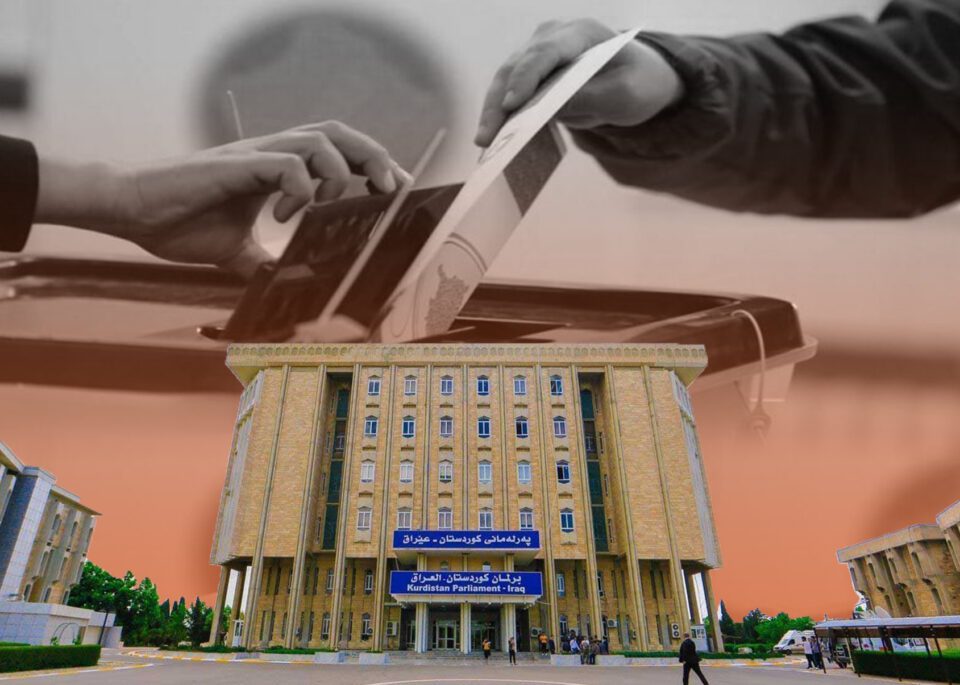With a record number of candidates, the elections promise a dynamic political landscape, emphasizing inclusivity and the importance of fair representation.
A total of 139 political lists have been registered for the October 20 parliamentary elections, competing for 100 seats.
According to the Independent High Election Commission (IHEC) in Iraq, 13 political parties, two coalitions, and 124 individual candidates have registered, including 19 Christians and 20 Turkmens. Among the Christian candidates, seven are from Erbil province, four from Sulaimani, and eight from Duhok. The Turkmen community has 20 candidates, with 14 in Erbil and six in Sulaimani.
Kurdistan Regional President Nechirvan Barzani has announced that the sixth session of the Kurdistan Regional Parliament (KRP) elections will occur on October 20, 2024. The IHEC has confirmed its readiness to conduct the elections as scheduled. Meanwhile, the Kurdistan Regional Government (KRG) has expressed its commitment to ensuring a successful election, and the election campaign is now in full swing.
Karwan Jalal, Director General of Data and Information at the Kurdistan Election Commission, told The Kurdish Globe: “Despite the major changes in the electoral system, especially the impact of the Federal Court’s decisions on the Kurdistan parliamentary elections, on June 4, 2024, the Secretariat General of the Iraqi Independent High Election Commission (IHEC) approved the law for the distribution of seats in the Kurdistan Parliament into four constituencies, reducing the total number of seats in the parliament from 111 to 100. This also involves reducing the seats for components from 11 to 5 and distributing them among the provinces. According to the decision, Erbil will have 34 seats, including 1 seat for the Christian component and 1 seat for the Turkmen; Sulaimani will have 38 seats, including 1 seat for the Christian component and 1 seat for the Turkmen; Duhok will have 25 seats, including 1 seat for the Christian component; and Halabja will have 3 seats, with no seats allocated for components. All these changes indicate that this election will be different from previous ones.”
Dr. Nasih Ghafour, a writer and political analyst for The Kurdish Globe, stated: “The election of a strong parliament is a crucial opportunity for enhancing the democratic system, institutional development, and reform initiatives in the Kurdistan Region. It also provides a broad platform for dialogue among parties, lists, and candidates. Everyone is free to promote their policies and programs and to criticize; however, no one should allow themselves to spread hatred or animosity.”
“This time, the position of women in the Kurdistan elections has been prioritized, ensuring that their representation is no less than 30% of the parliament. We all share a common destiny, making it our duty to work together for a peaceful democratic process. Electing a strong parliament is an essential opportunity to fortify the democratic system, institutions, and reforms, while also protecting the Kurdistan Region and ensuring the implementation of the federal system, as well as the constitutional rights of the Kurdish people,” he added.
“Of course, elections are always a tool for achieving political, economic, and social stability. Peaceful and transparent elections that are widely accepted by the population contribute to stability by increasing public confidence in democratic processes on one hand and reducing political chaos and conflict on the other. What is crucial for the Kurdistan Region is the presence of transparent elections, as these elections reflect their significance on both domestic and foreign levels within the national security strategy,” Dr. Ghafour added.
He also stated: “At the national level, the existence of free and fair elections can effectively dismantle all those factors that have negatively impacted the political and economic processes in the Kurdistan Region. Moreover, this election represents an opportunity to grant greater powers to the institutions and establish comprehensive governance, leading to increased social progress and economic development.”
“Conversely, this election will grant the government greater legitimacy, carrying the people’s orders, strengthening its credibility in the eyes of citizens, and enhancing the government’s ability to address security concerns and build stable institutions capable of effectively dealing with threats. This is a crucial pillar for the strength and sustainability of the national security strategy, as it ensures public support and cooperation in addressing the challenges confronting national security,” he remarked.
The Kurdish Globe

